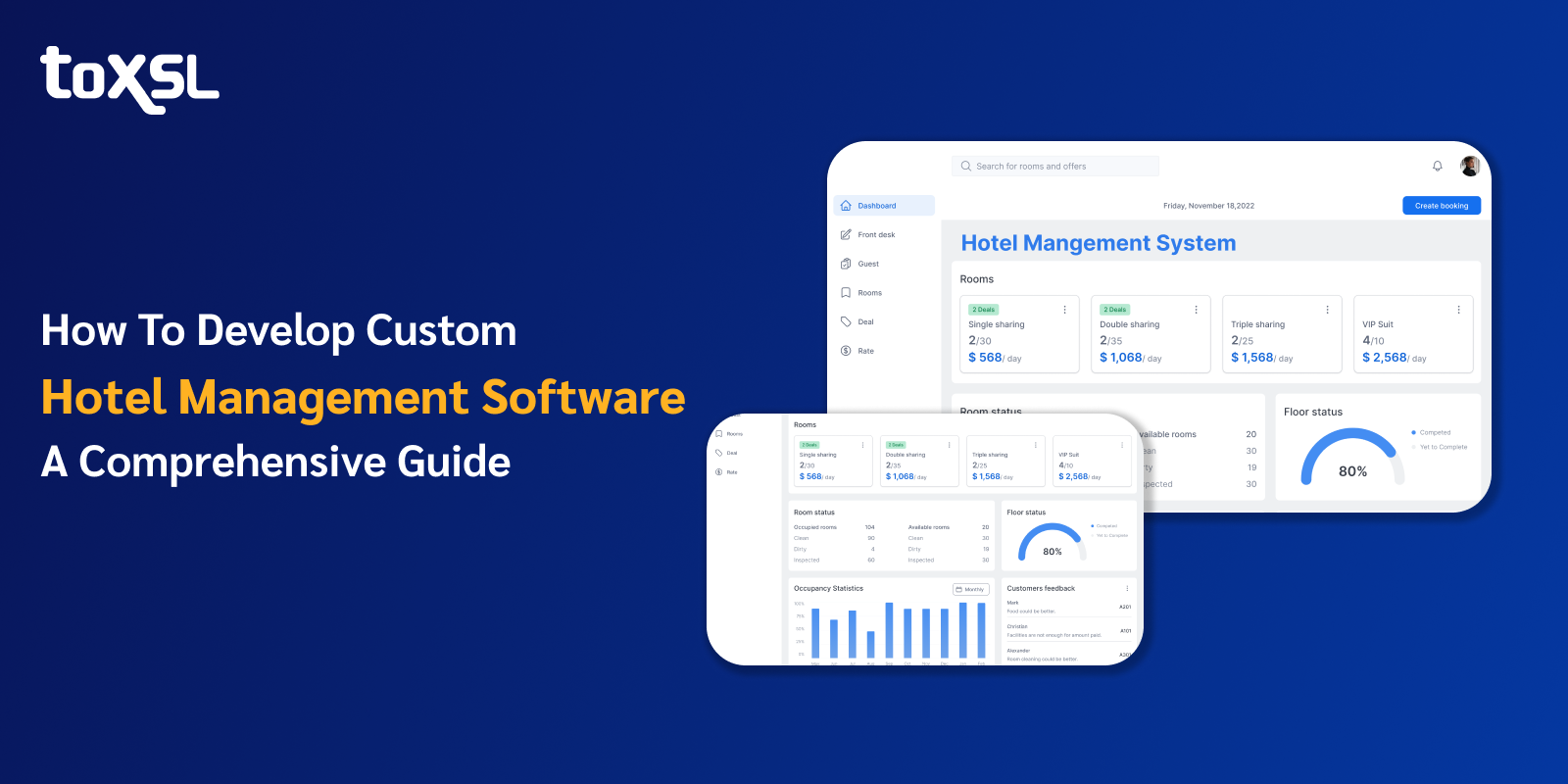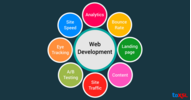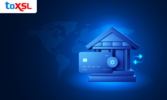- Sep 09, 2025
Share this post on:

Did you know that the global hotel management software market was valued at $3.5 billion in 2023 and is projected to reach $5.9 billion by 2032? This growth is driven by the increasing adoption of cloud-based solutions and the need for more efficient hotel operations management.
Furthermore, the rising demand for improved guest experiences is predicted to contribute to further driving the market expansion. Custom hotel management software is a powerful tool that helps hotel owners streamline administrative tasks while enhancing bookings in both the short and long term.
Hospitality management software simplifies hotel operations through automation, covering all essential aspects of management, including reservations, housekeeping, guest check-in and check-out, back office and front office functions, maintenance, and billing.
Key Takeaways:
The global hotel management software market is projected to grow from $3.5 billion in 2023 to $5.9 billion by 2032, driven by cloud-based solutions and improved guest experience needs.
Hotel Management Software (HMS) automates operations like reservations, housekeeping, guest management, and billing.
Types of HMS: Cloud-based (flexibility), On-premise (data control), Open-source (affordability).
Custom HMS development involves defining requirements, selecting a tech stack, and ensuring scalability.
Key features include reservation management, CRM, analytics, and mobile accessibility.
Types of Hotel Management Software
A HMS streamlines all essential tasks and offers the most valuable insights to handle your hotel performance. Let us dive deeper into the blog and learn about the types of hotel management software solutions.
Cloud-based HMS: Cloud-based hotel management systems provide flexibility and accessibility, allowing hotel owners to manage their hotel from any location with an internet connection. This makes cloud-based HMS suitable for independent properties or those operating in multiple locations. Additionally, these solutions are generally easier to scale as your business expands.
On-premise HMS: On-premise hotel management systems offer enhanced control over data security but make it necessary to make an initial investment in hardware and software licenses. This system is often preferred by larger hotels with complex requirements and the resources to maintain their IT infrastructure.
Open-source HMS: Open-source hotel management systems deliver customizable solutions at a more affordable price, making them attractive to budget-conscious hotels. However, they do require technical expertise for installation, maintenance, and regular updates.
Also Read: How to Develop Custom Cash Management Software
How to Develop Custom Hotel Management Software
A custom hotel management system can help businesses save time and money. Here are a few reasons that can help you understand the top reasons to invest in hotel booking management software:
Define Your Requirements
Once you've identified your specific needs, define the requirements for your custom hotel management software. Consider the following:
- Functional Requirements: What features do you need to include in your software? (e.g., room assignment, guest request management, inventory tracking)
- User Interface: What user interface elements will you use to interact with the software? (e.g., web-based, mobile app, desktop application)
- Data Integration: How will your software integrate with existing systems and data sources?
- Scalability: Will your software need to accommodate a large number of users and transactions?
Choose the Right Development Method
There are several development methods you can choose from when developing custom hotel management software:
- Custom Software Development: Develop a bespoke solution tailored to your specific needs.
- Off-the-Shelf Software: Use existing hotel management software with customization options.
- Hybrid Approach: Combine elements of both, using off-the-shelf software as a foundation and adding custom features.
Select the Right Technology Stack
The technology stack you choose will depend on your development method, user interface requirements, and scalability needs. Consider the following:
- Front-end Frameworks: React, Angular, or Vue.js for web-based applications.
- Back-end Frameworks: Node.js, Ruby on Rails, or Django for server-side logic.
- Databases: Choose a suitable database management system (DBMS) for storing and retrieving data.
Develop Your Custom Hotel Management Software
Once you've defined your requirements and chosen the right development method and technology stack, it's time to develop your custom hotel management software. Consider the following:
- Agile Development Methodologies: Use iterative and incremental approaches to ensure rapid development and continuous improvement.
- Testing and Quality Assurance: Conduct thorough testing to ensure stability, security, and functionality.
- Deployment and Maintenance: Plan for smooth deployment, updates, and maintenance of your software.
Key Features of Hotel Management Software Solutions
Hotel management software solutions have become essential tools for the hospitality industry, streamlining operations and enhancing guest experiences. Here’s a closer look at the key features that make these systems invaluable for hotels of all sizes.
1. Reservation Management: A robust reservation management system allows hotels to handle bookings efficiently. It provides real-time updates on room availability, rates, and reservations across multiple distribution channels, including the hotel’s website and online travel agencies (OTAs). This feature helps prevent overbookings and ensures accurate pricing, thereby safeguarding revenue and guest satisfaction.
2. Front Desk Management: Front desk operations are simplified through integrated management systems. Staff can quickly check guests in and out, allocate rooms, and access guest information from a centralized platform. This efficiency reduces wait times and enhances the overall guest experience.
3. Housekeeping Management: Effective housekeeping management features allow hotels to track room cleaning schedules and status in real-time. The software assigns tasks to housekeeping staff based on occupancy and guest requests, ensuring that rooms are cleaned promptly and efficiently.
4. Guest Relationship Management (CRM): A built-in CRM system helps hotels manage guest profiles, preferences, and communication. This capability allows for personalized services, such as tailored promotions based on past stays, enhancing guest loyalty and satisfaction.
5. Channel Management: Channel management features enable hotels to manage rates and availability across various booking platforms seamlessly. This integration ensures that all channels reflect current inventory, helping maximize occupancy rates while avoiding double bookings.
6. Reporting and Analytics: Comprehensive reporting tools provide insights into key performance indicators (KPIs) like occupancy rates and revenue per available room (RevPAR). These analytics help hoteliers make informed decisions regarding pricing strategies and operational improvements.
7. Payment Processing: Integrated payment processing solutions streamline financial transactions by allowing secure online payments, generating invoices, and managing billing tasks efficiently. This feature enhances cash flow management while providing guests with a smooth payment experience.
8. Mobile Accessibility: Modern hotel management software often includes mobile access, enabling staff to manage operations on the go. This feature allows for real-time updates on guest requests, housekeeping status, and payment processing from mobile devices.
9. Integration with Third-Party Systems: Seamless integration with other software solutions, including hotel revenue management systems or accounting software, ensures that data is shared across platforms efficiently. This connectivity reduces manual errors and enhances overall operational efficiency.
10. Security and Compliance: Robust security features are crucial for protecting sensitive guest information. Hotel management software solutions typically include compliance with industry standards to safeguard data integrity and privacy.
Also Read: How to Develop Order Management Software
Cost to Develop a Custom Hotel Management Software
Developing hospitality PMS software like Sybxis Property Hub can be a game-changer for businesses. But there is no fixed price for the development of hotel property management systems (PMS). Price can vary depending on the features and functionalities requirements of the software. In general, the cost of development of custom hotel management software ranges between $10,000 and $150,000, depending on your requirements. Here is a budget breakdown based on software complexity:
Basic Features: The basic complexity covers basic features such as reservation management, room inventory tracking, and guest check-in/out. The cost of basic custom management software ranges from $10,000-$50,000.
Intermediate Features: The intermediate complexity covers features such as housekeeping management, point-of-sale integration, and basic reporting tools. The cost of intermediate complexity software ranges between $50,000 and $100,000.
Advanced Features: The advanced complexity apps cover features such as revenue management, guest loyalty programs, and integrations with advanced guest self-service tools. The cost of advanced features ranges between $100,000 and $150,000.
Wrapping Up:
Investing in custom online hotel booking software can help you enhance efficiency and increase guest satisfaction. It can enhance overall profitability and fulfil all your business requirements. Are you looking for a scalable., flexible, and customized hostel management system for your successful hotel business?
At ToXSL Technologies, we specialize in developing advanced hotel management systems with tailored software architecture and features designed to meet your specific hotel needs. Contact us to learn more.
FAQs
1. What is custom hotel management software?
Custom hotel management software is a personalized digital solution designed to manage hotel operations like bookings, check-ins, housekeeping, billing, and guest services. Unlike off-the-shelf software, it’s built specifically to meet the unique needs of your hotel or hospitality business.
2. Why should I invest in custom hotel management software?
Custom software offers flexibility, better integration with your existing systems, and the ability to add features tailored to your operations. It helps improve efficiency, reduce manual tasks, and enhance the guest experience—giving your hotel a competitive edge.
3. How long does it take to build hotel management software?
The development timeline depends on the software’s complexity, number of features, and integration needs. On average, a basic version can take 2–4 months, while more advanced solutions may take 6 months or more. ToXSL Technologies ensures timely delivery with complete transparency.











